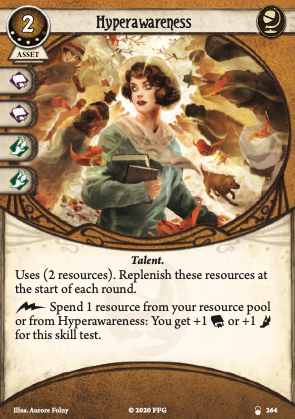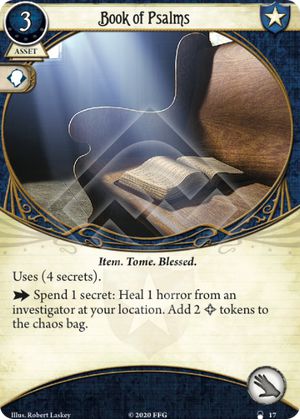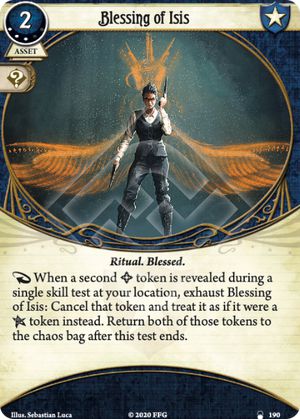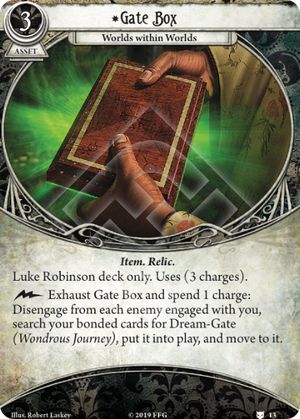
One of the less taken core set talents, Hyperawareness has a weird set of stat's, and as such, not many characters actually like it. In older campaigns is a relatively weak stat that's little tested, is obviously universally useful, but Hyperawareness is costly to play and costly to run, so characters that might use it (Roland Banks comes to mind) cannot actually afford to. Since then has picked up as a useful stat in newer campaigns, so characters are actually picking it for the ability to get out of danger.
Enter: Hyperawareness, a clue focused character is all but guaranteed to find use for +2 free every single turn, and all of a suddent thei've got a very powerful emergency button to press when an enemy gets too close.
You'll most probably be looking at Hyperawareness when you're playing Rex Murphy, Ursula Downs or Harvey Walters, the former two might actually even consider using it to fuel some killing with an Ornate Bow.
Good card, it's just a bit niche.



